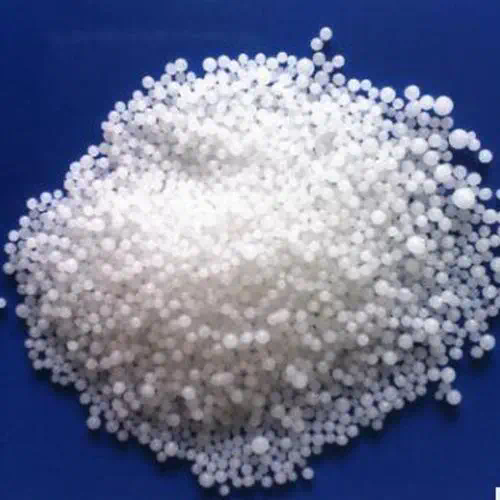Introduction
For a sustainable citrus tree cultivation, organic lemon tree fertilizer is essential as it has many benefits compared to synthetic ones. These fertilizers are made to follow natural growth processes which means that they supply lemon trees with necessary nutrients in forms similar to those found in their soil environment. In addition to promoting healthier plant development this method also contributes towards overall sustainability of agricultural system.
Composition and environmental impact distinguishes organic fertilizers from synthetic ones. Organic fertilisers release nutrients slowly into the soil by breaking down over time since they are derived from natural sources such as plant residues, animal manure or minerals mined underground thus providing an example for steady growth of lemon tree unlike bursts expected when using artificial manures which may cause weak stem and pollution through surface runoff into rivers etcetera.
Furthermore, utilization of organic matter based lemon tree fertilizer promotes sustainable farming practices. According to Dr Elaine Ingham who is a renowned microbiologist specializing on soils “Organic matter feeds the soil biology; without it there can be no nutrient availability to plants neither can we maintain good structure in our soils”. Essentially what happens here is that by applying organic fertilizers we increase biological activity within the soil thereby supporting robust plant health while enhancing resistance against pests and diseases at the same time.
By opting for organic lemon tree fertilizer not only will growers ensure balanced dieting for their plants but also foster healthy environments by conserving biodiversity as well as reducing chemical loads onto ecosystems around us. This holistic approach towards fertilization aligns with modern principles of sustainable agriculture which advocate for practices aimed at retaining or improving soil health together with other components constituting entire ecosystem’s welfare systems.
Understanding Nutrient Requirements Of Lemon Trees
All citrus species including lemons have specific nutritional needs that must be met if they are going thrive and bear fruits abundantly. Knowing these requirements is important during application of manure especially when one opts use natural types like those meant for feeding trees such as lemons.
The main macronutrients required by lemon plants are nitrogen(N), phosphorus(P) and potassium(K) also known as NPK. Nitrogen is essential in the formation of leaves branches; phosphorus aids root system development while flowers need it most; potassium on other hands ensures overall healthiness through enabling water absorption which helps fight against diseases.
Micronutrients can be provided for in different amounts through organic fertilisers because they contain various elements such as calcium (Ca) magnesium (Mg) iron(Fe). These minerals play critical roles within plants’ bodies structures thus preventing common nutrient deficiencies that may lead to low crop yields or poor quality fruits for example Ca is necessary during cell wall synthesis especially citrus rind formation; Fe takes part in chlorophyll synthesis so important photosynthesis.
There is an advantage associated with using this type of manure since it provides these nutrients forms which easily assimilated by plants according to Dr.John Dempsey who specializes organic farming “Organic manures have slow release properties thereby giving out wide range nutrition imitating plants natural feeding habits over time. This prevents leaching off nutrients into rivers etcetera besides building stronger resilient soil ecosystems.”
Also, these organic fertilizers enhance soil formation and boost its carbon-based substance. They also make it retain water better while ensuring that nutrients reach the roots of plants very easily. This works wonders for lemon trees which require soils that are well drained but still capable of holding moisture.
When farmers know what lemon trees need in terms of nutrients and how they can be supplied by organic manure, then they will use this knowledge to ensure faster growth rates, bigger harvests as well as sustainable cultivation methods. With such a background in mind let us now look at different kinds of organic fertilizers for lemon trees, their advantages and disadvantages vis-a-vis specific growing conditions.

Organic Lemon Tree Fertilizers Kinds
You have to choose the right organic lemon tree fertilizer in order to meet the needs of your citrus plants. There are many types of organic fertilizers, each with its own benefits and drawbacks. Knowing this will help you make choices that will promote health and productivity for your lemons.
Compost
Compost is a very versatile organic fertilizer and it’s great for lemon trees too. It is full of nutrients which enrich the soil structure making it retain more water while being aerated at the same time. Additionally, compost introduces helpful microorganisms into the ground that break down organic matter thus releasing plant-absorbable nutrients.
Manure
For lemons, any animal manure like chicken or cow or horse can work well as an organic fertilizer. This type of manure contains high amounts of Nitrogen which is important for the leafy growth of the plant. However, care should be taken when using raw manures because they may burn with ammonia or introduce diseases into soils.
Specialized Organic Blends
Commercially prepared mixtures called specialized organic blends are made up of different natural materials blended together so as to provide a balanced range of nutrients specifically required by citrus trees. Bone meal (for phosphorus), blood meal (for nitrogen), and kelp meal (for potassium and trace minerals) are some examples often found in these mixes.
Pros and Cons
One great thing about natural fertilizers for lemon trees is their slow release nature that imitates what happens in undisturbed soil over time—this means nutrient supply remains consistent without causing shock or damage like quick-release synthetic ones would do.
On the other hand, nutrient ratios can be highly variable among organics, especially those derived from animals e.g., manures hence accurate nutritional management might become difficult at times. Also, if deficiencies are severe then slow-reacting times exhibited by most organic fertilizers may not rectify them fast enough.
Awareness of these attributes helps gardeners/farmers to select appropriate organic lemon tree fertilizers based on specific soil conditions and nutritional needs. This ensures that adequate nutrition is provided for growth and fruiting among such plants thereby supporting sustainable agriculture.
Suggestions for the Best Way to Apply Organic Fertilizer to Lemon Trees
Using organic lemon tree fertilizer is important if you want your lemon trees to be able to take in nutrients and stay healthy. The best practices stated here not only support tree growth but also ensure that your gardening efforts remain sustainable. Provided are steps on how to correctly apply organic fertilizer to your lemon trees, as well as some seasonal schedules for fertilizing.
Step-by-Step Guide for Applying Fertilizer
Time: In early spring when new growth is starting and late summer before dormancy sets in are the two best times for fertilizing lemon trees. This timing allows nutrients to be available when the trees are most actively growing and preparing themselves for the next blooming and fruiting phase.
Preparation: Before applying any fertilizers, make sure that there is enough moisture in the soil around each tree; if it’s dry then water them a day ahead of time. This will help soils absorb nutrients better while reducing nutrient runoff risks.
Application Method:
Even Distribution: Spread fertilizer uniformly over a circular area at ground level, extending outwards until reaching the dripline (i.e., directly beneath outermost branches). Avoid creating piles against trunks which may cause burns.
Mixing It In: Rake or hoe gently into topsoil about 1-2 inches deep after spreading out evenly so as mix thoroughly with earth where roots can easily access them thereby maximizing absorption rate.
Thorough Watering: After application, soak area thoroughly with water in order to dissolve all applied chemicals and carry them down through deeper layers of soil where they can be taken up by roots more effectively.
Seasonal Fertilization Schedules
Young Trees: Frequent light applications work well for young lemon trees because such frequent feedings foster rapid growth necessary during establishment stages; use lighter doses every 2-3 months throughout the growing season.
Mature Trees: With mature lemons fewer but larger doses are required; thus, it is enough to fertilize once in early spring and another time towards summer’s end.
According to Dr. Annabelle Rodriguez who specializes in growing organic citrus fruits says that: “Consistency with moderate fertilization prevents excesses or deficiencies which compromise tree health leading to poor fruit quality.”
Implementing these instructions about the best way of applying organic lemon tree fertilizer will make sure your plants get just enough nutrients at the right moments so they can grow healthily and bear many fruits without upsetting the ecological equilibrium within your garden.

Typical Problems and Their Solutions with Using Organic Fertilizers on Lemon Trees
Applying organic lemon tree fertilizer can be problematic for a few reasons. These issues or challenges may negatively impact your plant’s healthiness or productivity. However, figuring out what the problems are and how to fix them will ensure that everything keeps growing well and bearing lots of fruit year after year. Here is an overview of some common difficulties associated with organic fertilization along with troubleshooting tips.
Spotting Common Issues
Under-Fertilization:
- Symptoms: Slow growth; smaller than average sized leaves; fewer fruits produced or smaller in size.
- Solution: Increase the frequency or quantity of fertilizer used so it matches up better with how much the tree is growing. Nutrient deficiencies specific to certain soils can be identified by conducting soil tests.
Over-Fertilization:
- Symptoms: Leaf burn; lush foliage without any or very little fruiting occurring; salt buildup evident in soil samples taken from around roots of plants.
- Solution: Reduce both the amount applied at one time as well as the number of times per week/month/year; flush through watering excess salts/nutrients out of the rootzone area(s).
Modifying Fertilizing Practices
Soil Health Monitoring:
- Regularly check pH levels in soil and nutrient content as this will create the best possible environment for your citrus trees like lemons. Soil acidification by organic fertilizers generally benefits these kinds of plants but should still be watched carefully not to overdo acidity levels which might harm other crops grown nearby.
Balancing Nutrient Application:
- Use a balanced organic fertilizer which has the right amounts (ratio) of nitrogen (N), phosphorus pentoxide (P2O5), & potassium oxide (K2O). Add supplements only where deficiency is shown by soil tests.
Considering Environmental Factors:
- Change how often you add fertilizer depending on surrounding environmental conditions e.g., rainfall, temperature, type of native ground, etc.. In regions where rainfalls are high enough to wash away nutrients from the soil easily, more frequent applications might be needed.
According to Dr. Lucy Bradley, who specializes in sustainable horticulture, “There are no two lemon trees that are exactly alike and therefore their nutritional requirements can vary greatly depending on factors such as location, health status among others. A person has to keep adjusting what they feed them with based on observations made over time.”
Conclusion
Using organic lemon tree fertilizer rightly does not only mean supplying nutrients; it also includes knowing what your lemon trees specifically require and adjusting methods accordingly with long-term benefits in mind. Apart from guaranteeing that your lemon trees will stay healthy and productive, this system also helps maintain a safe surrounding by minimizing the use of artificial substances.
By embracing organic approaches while being observant of our lemon’s demands we can have strong growth rates, abundant production of fruits as well as sustainable gardening. It is important to note that learning how best to fertilize organically never stops but requires one’s keenness on small things coupled with their commitment towards conserving nature. In other words, when you take care of your lemons they too take care of everything around them.
Here are three authoritative references related to organic lemon tree fertilizer:
- University of Florida Extension – This resource provides guidelines on the best times to collect leaf samples for nutrient analysis, which is crucial for determining the specific fertilization needs of lemon trees.
- University of Arizona Extension – This guide discusses how often to fertilize citrus trees, including lemons, with recommendations for using ammonium sulfate or ammonium phosphate, which are common in organic fertilization practices.
- University of Florida EDIS – Offers detailed insights into growing lemons in home landscapes, including the recommendation that 20% to 30% of the nitrogen in fertilizer should come from organic sources.







